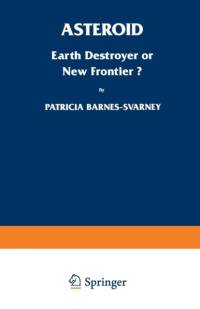Om Asteroid
Asteroids sling through space, celestial debris of diverse origins: leftovers from the formation of the solar system, broken offshoots of parental asteroids, or comets that have lost their glow. For the first time in a popular book, Patricia Barnes-Svarney discloses how some asteroids - rich in precious minerals such as gold and platinum - may one day be lassoed and mined by man. She also explores how the natural resources that abound in some asteroids could possibly support human life, leading to their colonization and use as space stations. One day, too, they may reveal to us the secrets of the origins of life. But if an asteroid merely one kilometer in diameter - about the size of eleven football fields end-to-end - were to smash into Earth, it would mean a global catastrophe. And if a larger asteroid - one the size of Vermont - were to strike, life on our planet would come to an end. We know that we've been struck before - from the large and small impact craters that dot the Earth's major land masses. If, as one theory states, the chance of a major collision is currently about one in ten thousand - similar to that of dying from anesthesia during surgery or of being killed in a car crash during any six-month interval - should we be living in fear? How could we possibly prepare ourselves for such a disaster? Patricia Barnes-Svarney, an asteroid enthusiast since childhood, asserts that the threat is real, and that there are better defenses than those now in place. In Asteroid, she vividly evokes both the perils and fascination of these heavenly bodies that have the power to yield untold rewards - and boundless destruction.
Visa mer

